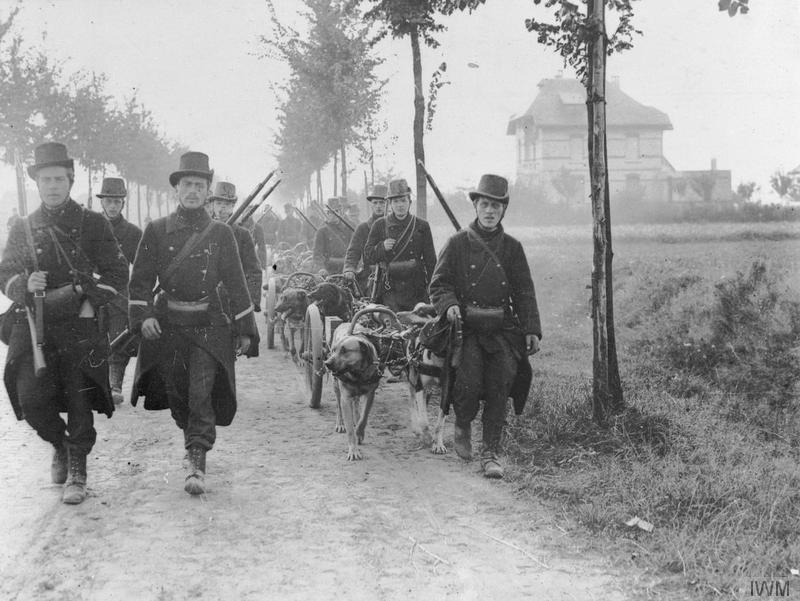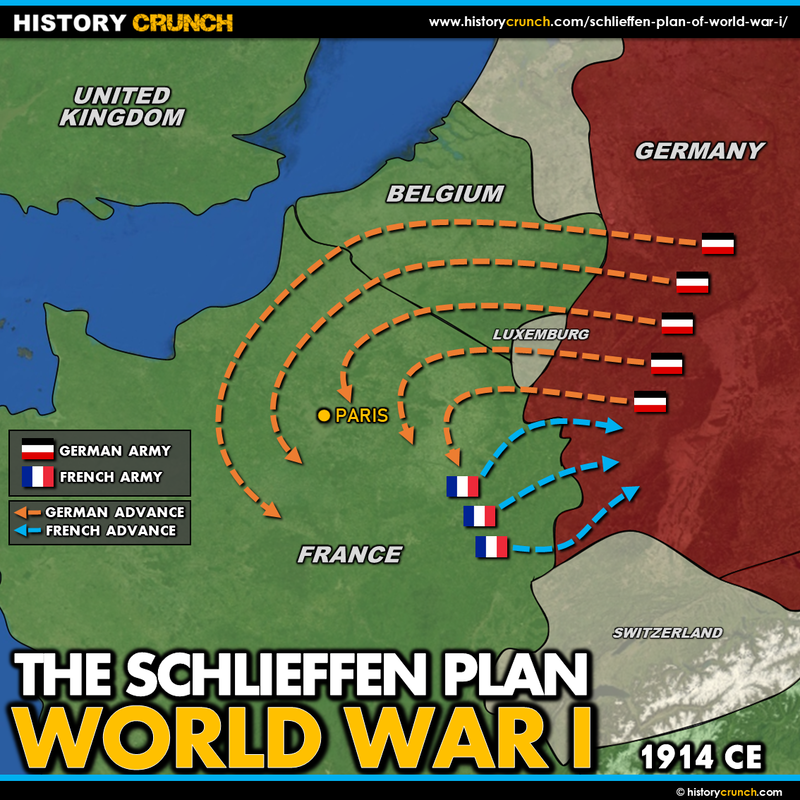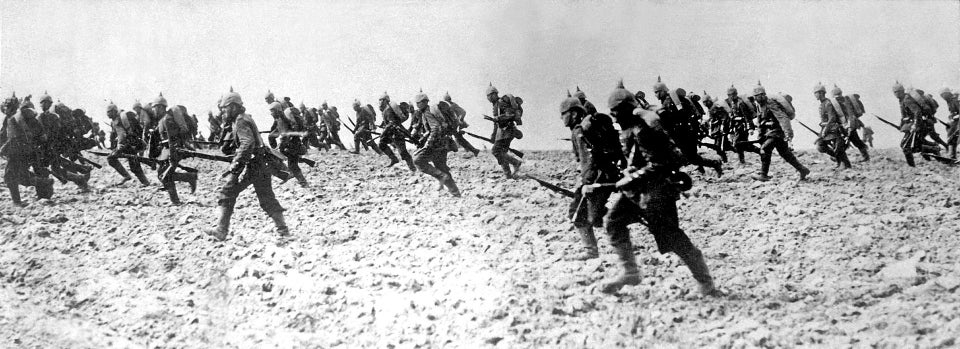BATTLE OF THE FRONTIERS IN WORLD WAR I
The Battle of the Frontiers was one of the main early battles of World War I along the Western Front, which was the line of trenches that stretched through Belgium and France. It was fought between the Allied Powers of France, Belgium and Britain against the Central Power of Germany. The Battle of the Frontiers was actually a series of battles that took place along the eastern region of France (Lorraine) and the Ardennes Forest of Belgium from August 7th until September 6th in 1914.
At the outbreak of World War I in the summer of 1914, France and Germany launched competing plans of attack. For instance, Germany launched the Schlieffen Plan, while France launched Plan XVII. The French battle plan (Plan XVII) was created in the two years before the start of World War I, in the event that a war between France and Germany might occur. In general, the plan focused on mobilizing French forces as quickly as possible to defend specific strongholds, while simultaneously invading German territory. The plan was enacted on August 7th in 1914 by French General Joseph Joffre and directly led to the events of the Battle of the Frontiers.
The main battles of the Battle of the Frontiers included: the Battle of Mulhouse (August 7th to the 10th), Battle of Haelen (August 12th), Battle of Lorraine (August 14th to the 25th), Battle of Ardennes (August 21st to the 23rd), Battle of Charleroi (August 21st to the 23rd) and the Battle of Mons (August 23rd). The Battles of Mulhouse, Lorraine, Ardennes and Charleroi were French offensives, while the Battles of Haelen and Mons were German offensives. The French commander-in-chief General Joseph Joffre oversaw the French offensives, and the German actions were directed by Helmuth von Moltke. In all, the battles involved 68 different German divisions, who faced off against 62 French divisions, 6 Belgium divisions and 6 British divisions.
In the end, the Battle of the Frontiers was a massive failure for the French Army and the British Expeditionary Force (BEF). In fact, the German Army was able to push back the main French and British forces as part of the German plan of attack – Schlieffen Plan. This allowed Germany to advance its forces forward into French territory during its push towards Paris, the French capital. With that said, the German advance was eventually stopped in the First Battle of the Marne. As such, the Battle of the Frontiers was important because it led to Germany gaining a significant foothold in France, which eventually led to trench warfare of the Western Front. It is estimated that the French Army suffered as many as 260,000 casualties and 75,000 deaths in the Battle of the Frontiers. For its part, the British are estimated to have experienced over 29,000 casualties. Whereas, it is believed that Germany endured over 300,000.
CITE THIS ARTICLEAUTHOR
|
|



